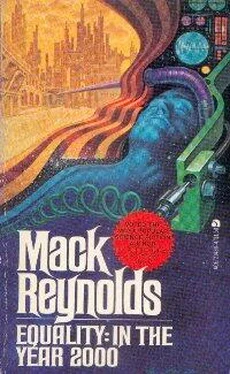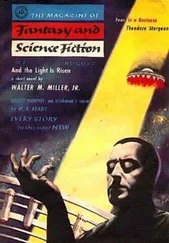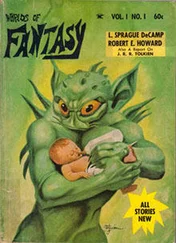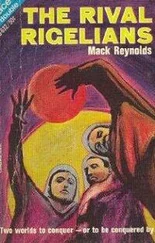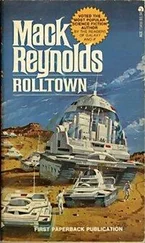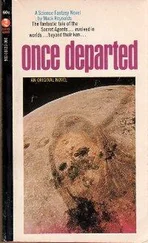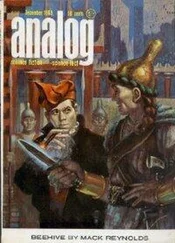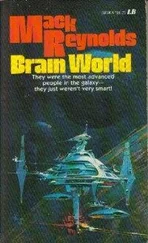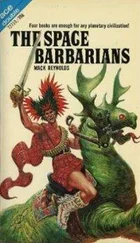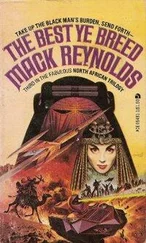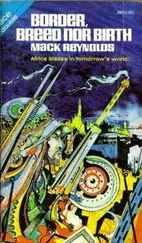Mack Reynolds - Equality - In the Year 2000
Здесь есть возможность читать онлайн «Mack Reynolds - Equality - In the Year 2000» весь текст электронной книги совершенно бесплатно (целиком полную версию без сокращений). В некоторых случаях можно слушать аудио, скачать через торрент в формате fb2 и присутствует краткое содержание. Год выпуска: 1977, ISBN: 1977, Издательство: Ace Books, Жанр: Фантастика и фэнтези, на английском языке. Описание произведения, (предисловие) а так же отзывы посетителей доступны на портале библиотеки ЛибКат.
- Название:Equality: In the Year 2000
- Автор:
- Издательство:Ace Books
- Жанр:
- Год:1977
- ISBN:0-441-21430-4
- Рейтинг книги:3 / 5. Голосов: 1
-
Избранное:Добавить в избранное
- Отзывы:
-
Ваша оценка:
- 60
- 1
- 2
- 3
- 4
- 5
Equality: In the Year 2000: краткое содержание, описание и аннотация
Предлагаем к чтению аннотацию, описание, краткое содержание или предисловие (зависит от того, что написал сам автор книги «Equality: In the Year 2000»). Если вы не нашли необходимую информацию о книге — напишите в комментариях, мы постараемся отыскать её.
Equality: In the Year 2000 — читать онлайн бесплатно полную книгу (весь текст) целиком
Ниже представлен текст книги, разбитый по страницам. Система сохранения места последней прочитанной страницы, позволяет с удобством читать онлайн бесплатно книгу «Equality: In the Year 2000», без необходимости каждый раз заново искать на чём Вы остановились. Поставьте закладку, и сможете в любой момент перейти на страницу, на которой закончили чтение.
Интервал:
Закладка:
“I dare say there are some half a million niggers here in Bombay that have no homes. They live on the streets, sleep on the streets at night. There are more than six-hundred thousand in Calcutta.”
The boy was appalled. “Can’t the government do something about them?”
“Dear boy, between a third and a half of the population of India goes to bed hungry every night. Probably some fifty million are starving to death, at a greater or slower pace. What would you expect the government to do? It’s deeply in debt as it is. My own concern is selling them tanks and armored cars, and most of it has to go on the cuff, as you Yankees call it.”
The Britisher indicated a smaller street. “We can cut through here to the Crawford Market. Largest in town, I wouldn’t wonder. What do the tourist ads always say? Picturesque and all that rot.”
They were in little more than an alley with tiny shacks on each side. Colored saris hung from some of the windows to dry and a few of the dwellings had plants suspended from the walls in old tin cans.
Halfway down the alley, Julian came to a halt. In a broken wheelbarrow were two tiny children, breathing heavily, their eyes very round. Both were naked, with arms and legs so thin as to be not much thicker than a piece of chalk; both had bellies swollen up to the size of watermelons.
He looked wildly at his companion, “Have they been abandoned by their parents?”
The other took him by the arm to lead him on. “Possibly. Come, there’s nothing you can do.”
Julian pulled away. “We can take them… take them to a hospital. See they’re fed. Have a doctor—”
Sir Edward said impatiently, “I told you there were some fifty million starving in India at any one time. You could drop the whole West fortune into this bottomless pit, and it wouldn’t have any noticeable effect whatsoever.”
He took Julian by the arm again and led him to the end of the alleyway and the wider street beyond.
Julian wrenched his arm away once more. “I… I don’t want to see any more. I want to go back to the ship.”
The other was miffed. He looked at his watch. “Very well. I had planned to take you to lunch. Charming restaurant called The Other Room, at the Ambassador Hotel, don’t you know? European cuisine, none of this bloody nigger stuff.”
The boy looked at him. “How many of these Indians could eat on what it would cost us there for a single meal?”
The other laughed his short, humorless laugh. “Hundreds of them, I shouldn’t wonder. Dear boy, the average Indian doesn’t spend in a year what it would cost us to lunch at The Other Room.”
Julian shook his head. “I’m going back to the ship.”
“Very well. No point in mucking around. Just head down this street. You’ll come out on the Frere Road. Turn right for about a mile and you’ll come to the Old Customs House and the government dockyard. You’ll be able to rent a boat there to return you to the cruise ship, I wouldn’t wonder.” Sir Edward was obviously mildly irritated.
Julian extended his hand. “Thank you very much, sir.”
“Oh, I say, not at all, dear boy. Give my regards to your uncle when the trip is over.”
Although the directions had seemed very simple, Julian managed to lose his way. After a time, he found himself in a slum street, not much different than the alleyway in which he had seen the starving children.
From a dark doorway a voice hissed at him, “Sahib?”
He came to a halt, frowning. He could make out an Indian woman in a pink sari, a caste mark on her forehead. She had by the hand a child of possibly four or five, with its own small sari. It was a beautiful child.
Julian came closer and said, “Yes?”
The woman beckoned to him, but he still didn’t understand. “What do you want?” he asked.
She reached down and lifted the child’s sari.
Julian blanched. At this point in his life, he had never had sexual relations, but there was no misunderstanding the gesture. He was being offered the child’s body. The woman was attempting to sell the little girl sexually. Her own daughter? Probably, he thought numbly.
It was at this point that he awoke, the horror still with him.
As he lay there, the rest of the experience came back. He had returned to the ship, after getting directions from another Sikh police officer, and had remained on it for the balance of the stay in India. He had not gone ashore again until they reached Hong Kong, and then only to take an airplane back to the States.
Spending the whole West fortune would not have been a drop in the bottomless pit of India’s poverty, according to Sir Edward Fitz-James. But when he had finally come into his inheritance, couldn’t he have done something , maybe set up a foundation to at least help out? Perhaps some hospitals, or orphanages?
But no, he told himself now, he hadn’t done a thing. Like his fellows, he had looked at philanthropy largely as a tax dodge. Born to wealth, he had been contemptuous of those who didn’t have it; it was a God-given privilege that he enjoyed because of his innate right to enjoy it. The only foundations West Enterprises had ever endowed had in one manner or another profited him, including the one set up for Dr. Pillsbury in return for putting him into stasis.
But the poverty of India had distressed him as a boy. Looking backward now, he couldn’t dismiss the poverty pockets in his own supposedly wealthy country. He had seen slums in Washington, D.C. not half a mile from the White House that were nearly as bad as those of Bombay. He had seen slums in New York, Chicago, and Los Angeles, possibly the three richest cities of the time, that were unbelievable.
Chapter Fourteen
The Year 2, New Calendar
In the past, man had little power over either his environment or his own nature. Nothing we did could fundamentally affect these factors, which were the result of natural processes that have acted over billions of years. But advances in our scientific knowledge, and the technological capabilities flowing from this knowledge, are making it possible for the human race to influence itself and its environment in major ways… If the decisions are not made rationally, it is highly unlikely that we or our descendants will appreciate the world that emerges.
—Gerald Feinberg, The Prometheus ProjectJulian had planned to spend a few hours at his studies before going over to the Leetes’, but it didn’t work out that way.
He had hardly finished his toilet and breakfast and sat down at his desk, when the phone screen buzzed.
He activated it and was confronted with the youthful, open face of Sean O’Callahan.
“Good morning, Mr. West. I hope I’m not bothering you.”
“Make it Julian. No, of course not. What can I do for you, Sean?”
He grinned. “Well, as a matter of fact, I have somewhat of a surprise for you. Can you come over to my place? I’m in Building Two, sixteenth floor, apartment sixteen-B.”
“A surprise?” Julian echoed—surprised.
“That’s right.”
He said, “All right, I’ll be right over.”
“Fine.” The other’s face faded from the screen.
Julian stood up and made his way toward the door. He couldn’t think of any particular reason to notify the Leetes of his little expedition into the outside world. In fact, unless he was mistaken, this was one of Edith’s work days and hadn’t Mrs. Leete said something about attending a meeting?
He took the elevator down to the metro level, and looked around. Always before when he had ventured out, one or more of the Leetes had been along, so he hadn’t had to figure out the transport system.
He asked the first passerby in halting Interlingua how to get to Building Two, which he assumed to be one of the other high-rise apartment buildings in the university city. The directions were simplicity itself, and he took the next car heading for his destination.
Читать дальшеИнтервал:
Закладка:
Похожие книги на «Equality: In the Year 2000»
Представляем Вашему вниманию похожие книги на «Equality: In the Year 2000» списком для выбора. Мы отобрали схожую по названию и смыслу литературу в надежде предоставить читателям больше вариантов отыскать новые, интересные, ещё непрочитанные произведения.
Обсуждение, отзывы о книге «Equality: In the Year 2000» и просто собственные мнения читателей. Оставьте ваши комментарии, напишите, что Вы думаете о произведении, его смысле или главных героях. Укажите что конкретно понравилось, а что нет, и почему Вы так считаете.
